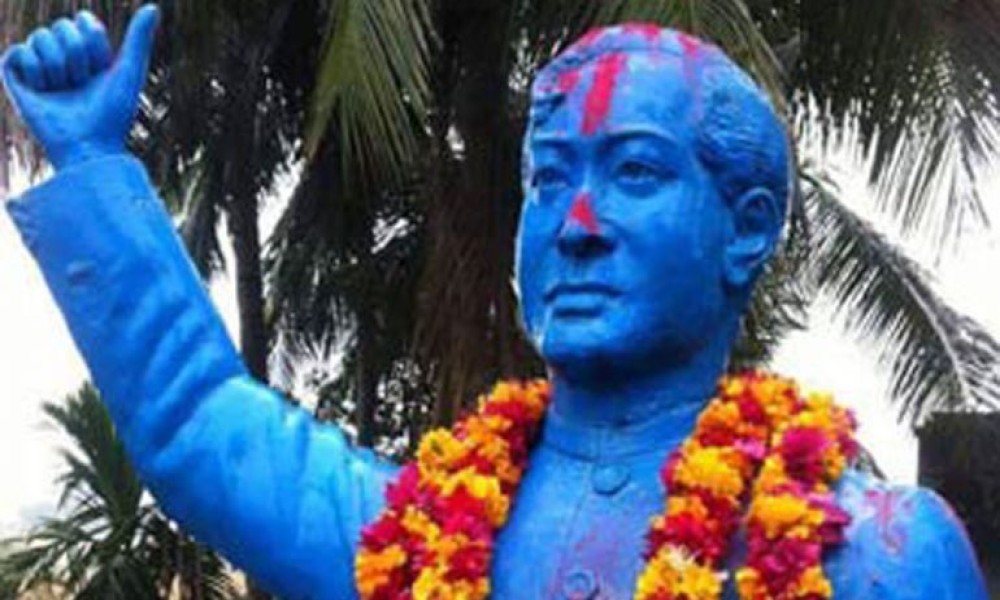Laxmi Rai
I never saw my father. When he was around, I was just a little child. So even if I saw him, I do not remember how he looked. But he is a hero to me. Whatever I heard from my mother, I figure out he was an exceptionally courageous human being committed to fight for democracy, human rights and people's sovereignty.
Although my family is from Bhojpur district, I was born in Khotang where my father was a jailer at that time. Before joining Nepal's security force, he was serving in India as a soldier. After returning from there, I started serving the Rana rulers as a military man. Later, he worked in the Rana palace. That was when and where he witnessed how the Rana oligarchs were looting the country and adding misery to the poor people.
An ordinary man would not have thought of revolting against the rulers he was serving. But my father was an extra-ordinary ma. He could not tolerate the injustice being done by the Ranas, and decided to take up arms against them.
He quit the government service, and started organizing people by delivering fiery speeches in several parts of Kathmandu. Speaking out against the rulers was an act of sedition back then. He was arrested, and the Ranas tried to bribe him to stop criticizing the government. He was a lieutenant when he quit the army, and he was promised promotion to the post of colonel or even general. But he did not agree. He left Kathmandu, reached Bhojpur and formed the Mukti Sena (The Liberation Army).
Before joining Nepal's security force, he was serving in India as a soldier. After returning from there, I started serving the Rana rulers as a military man. Later, he worked in the Rana palace. That was when and where he witnessed how the Rana oligarchs were looting the country and adding misery to the poor people.
Maoist leaders led a war from behind, mostly hiding outside the country. But my father was always on the frontline of every battle he led.
When I was young enough to make sense, I enquired about him with my mother. She told me: "Your father is a warrior. He is fighting against the Rana atrocity, and will return home only when people of this country are liberated."
By that time, my father had already gone missing. As I knew later, he and his comrade KI Singh had captured the Singha Darbar for 24 hours. And when they were subdued, they went to Tibet to regain strength. We were still in Bhojpur back then. My mother had to shoulder the burden of the whole family. I cannot describe in words how much trouble she had to bear to raise us all by herself.
Later, we knew that KI Singh was back to Kathmandu. And I and my mother headed off to Kathmandu to enquire with him about the whereabouts of my father. At the time, Bhojpur was not connected with Kathmandu by a motor road. We walked for three weeks to reach Kathmandu. Singh had become Prime Minister by then. We went to the PM's office. We were stopped by the guard. We were made to wait for him outside. We waited for him for hours. But he did not call us. When we started crying, someone came out and led us into his office.
Singh was sitting in the PM's chair. He told us: "Your husband fell sick, and we left him on the way to Tibet. Later, we sent our men to bring him back, but they returned with the news that he was already dead."
Maoist leaders led a war from behind, mostly hiding outside the country. But my father was always on the frontline of every battle he led.
Rumors were already swirling around that my father was no more alive. But my mother did not believe. She wanted to hear it from the horse's month, and Singh confirmed what she feared. The PM, who was once my father's comrade, did not help me. We performed my father's final rite on the banks of the Bagmati river.
When I was young, I went to meet Singh once again. This time, he was no longer Prime Minister. He asked me if I had any photos or documents about my father. My mother had a collection of photos of my father. She also had documents. We gave him whatever we had. He promised to write history about my father.
But he never published anything about my father. A few years later, I asked him when he would publish them. He said he would do it soon, and all the photos and documents were safe in a box at his house. Years passed, he never did anything document history about my father. I asked him to return the photos if he would not use them. But he did not, and kept avoiding me.
I now understand Singh never wanted to document my father's history. He just wanted to airbrush whatever documents we had of my father.
(Laxmi Rai is the daughter of Ram Prasad Rai, one of the first Nepalis to fight for democracy.)









